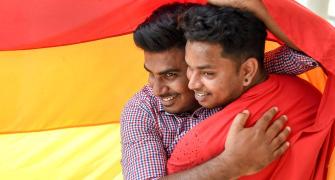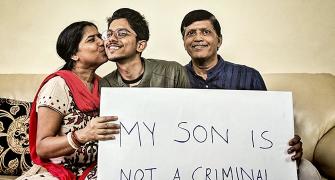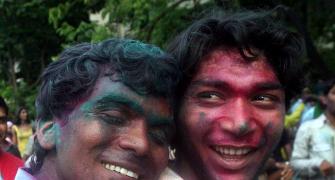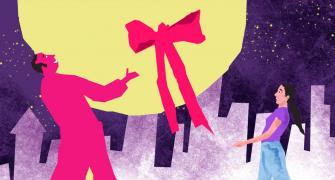Four more people belonging to the gay and lesbian community urged the Delhi high court on Thursday to declare that marriages between any two persons irrespective of their sex be solemnised under the Special Marriage Act (SMA).
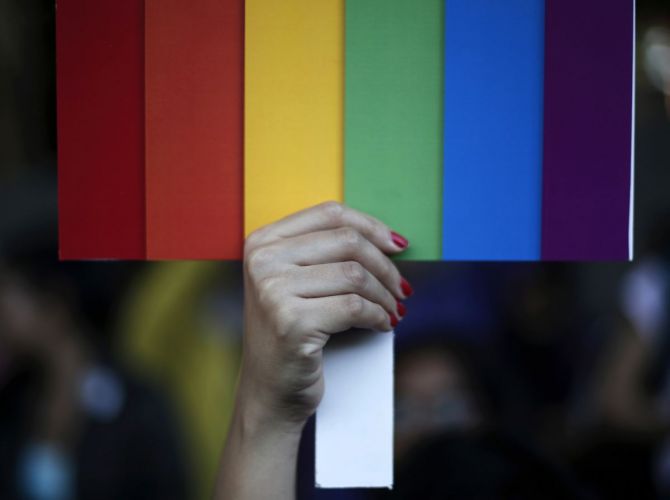
The Delhi government in response to a similar petition filed earlier has said that there is no provision in the SMA under which two women can be married, and it would be willing to abide by the court's direction.
The latest petition is in addition to three pleas already before the high court seeking recognition of same sex marriages under the SMA, Hindu Marriage Act (HMA)and Foreign Marriage Act (FMA).
A bench of Justices Rajiv Sahai Endlaw and Amit Bansal sought response of the Centre on the joint plea by three men and a woman, who have urged the court to also declare that the SMA applies, regardless of sex, to any two persons who wish to marry by reading down any gender or sexuality-based restrictions contained in the Act.
In their plea, filed through advocates Meghna Mishra and Tahira from Karanjawala and Co law firm, the petitioners have also sought that the provisions in the SMA which require a 'male' and a 'female' for solemnisation of a marriage be declared as unconstitutional unless they are read as 'neutral to gender identity and sexual orientation'.
During the hearing, the central government assured the bench that it would file a reply to the earlier petitions during the course of the day and the court listed all the four petitions, including the latest one, on April 20.
Meanwhile, Delhi government has filed its response to one of the petitions moved by two women seeking to get married under the SMA and challenging provisions of the statute to the extent it does not provide for same sex marriages.
It has said that there was no provision in the SMA under which the two women can be married and their marriage be registered.
The Delhi government also said that it was 'ready and willing to abide by the directions' of the court.
The latest petition has said that three of the petitioners have gone abroad as Indian laws do not recognise same sex couples or marriages and such relationships do not enjoy the same benefits as those enjoyed by heterosexual couples.
The fourth petitioner is also contemplating going abroad to be with his partner as laws here do not recognise same sex relationships, the petition has said.
In the first petition on the issue before the high court, Abhijit Iyer Mitra and three others have contended that marriages between same sex couples are not possible despite the Supreme Court decriminalising consensual homosexual acts and sought a declaration to recognise same sex marriages under the HMA and SMA.
The two other pleas are -- one filed by two women seeking to get married under the SMA and challenging provisions of the statute to the extent it does not provide for same sex marriages, and the other by two men who got married in the US but were denied registration of their marriage under the Foreign Marriage Act (FMA).
The two women and the two men, who got married abroad, have been represented by senior advocate Menaka Guruswamy and advocates Arundhati Katju, Govind Manoharan and Surabhi Dhar.
The plea by equal rights activists Mitra, Gopi Shankar M, Giti Thadani and G Oorvasi was filed through advocates Raghav Awasthi with Mukesh Sharma.
Mitra and others, in their petition, have contended that homosexuality has been decriminalised by the apex court but same sex marriages are still not being allowed under the HMA provisions.
'This is despite the fact that the said Act does not distinguish between heterosexual and homosexual marriage if one were to go by how it has been worded. It very clearly states that marriage can indeed be solemnised between 'any two Hindus'.
'In this view of the matter, it can be stated that it is against the constitutional mandate of non-arbitrariness if the said right is not extended to homosexual apart from heterosexual couples,' the petition has said.
The denial of this right to homosexual couples is also against the mandate of various international conventions that India is signatory to, the plea said.
The Centre had earlier told the high court that marriage between same sex couples was 'not permissible' as it was not recognised by 'our laws, legal system, society and our values'.
The petition by Mitra has said the case for extending the same right of marriage to 'lesbian, gay, bisexual and transgender' (LGBT) persons as those enjoyed by everyone else is neither radical nor complicated and rests on two fundamental principles that underpin International Human Rights Law -- equality and non-discrimination.
The two women petitioners, aged 47 and 36, have contended that not being allowed to get married has denied them several rights -- liking owning a house, opening a bank account, family life insurance -- which opposite sex couples take for granted.
The two men, who got married in the US, have said that their marriage was not registered under the FMA by the Indian consulate as they were a same sex couple.
'The Indian consulate would have registered the marriage of any similarly placed opposite sex couple,' they have contended.
The couple, in relationship since 2012 and got married in 2017, have also claimed that during the COVID-19 pandemic, non recognition of their marriage by the laws here continues to disentitle them to travel as a married couple to India and spend time with their families.

